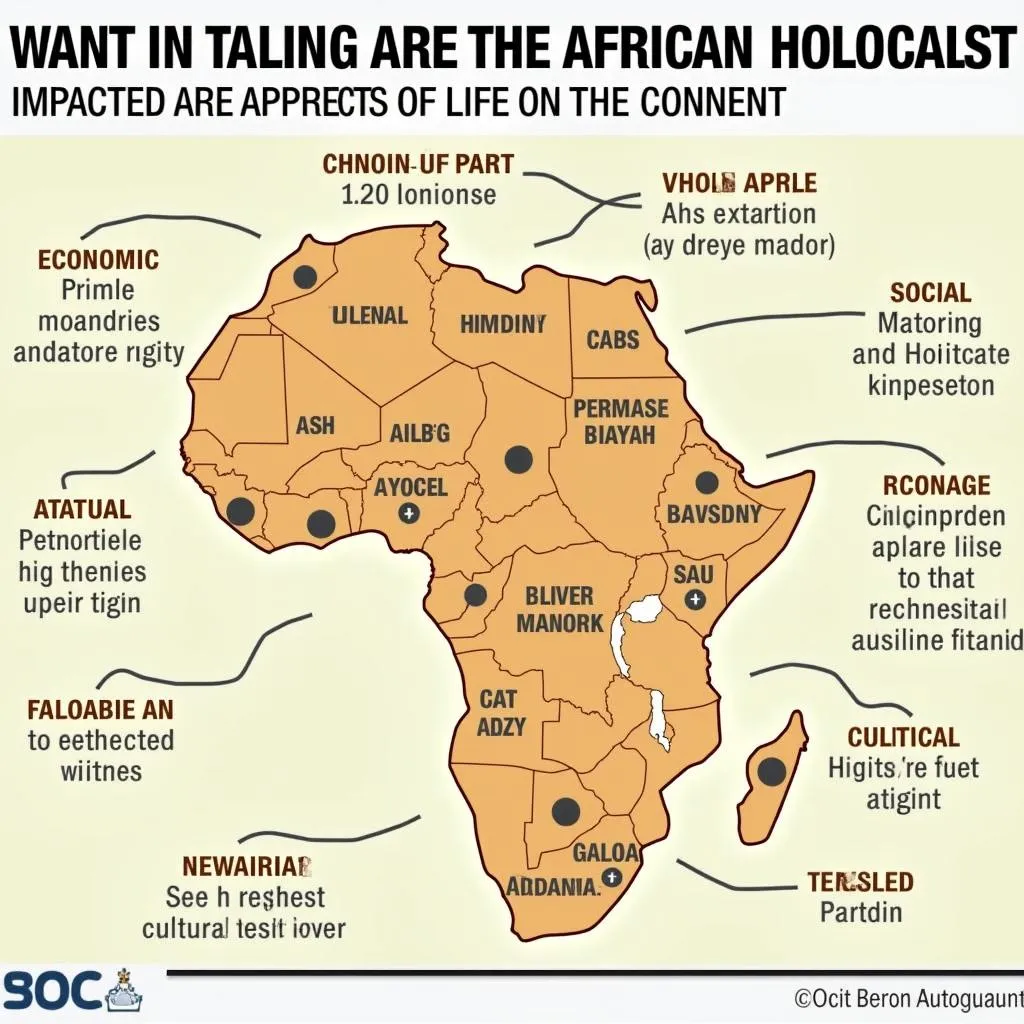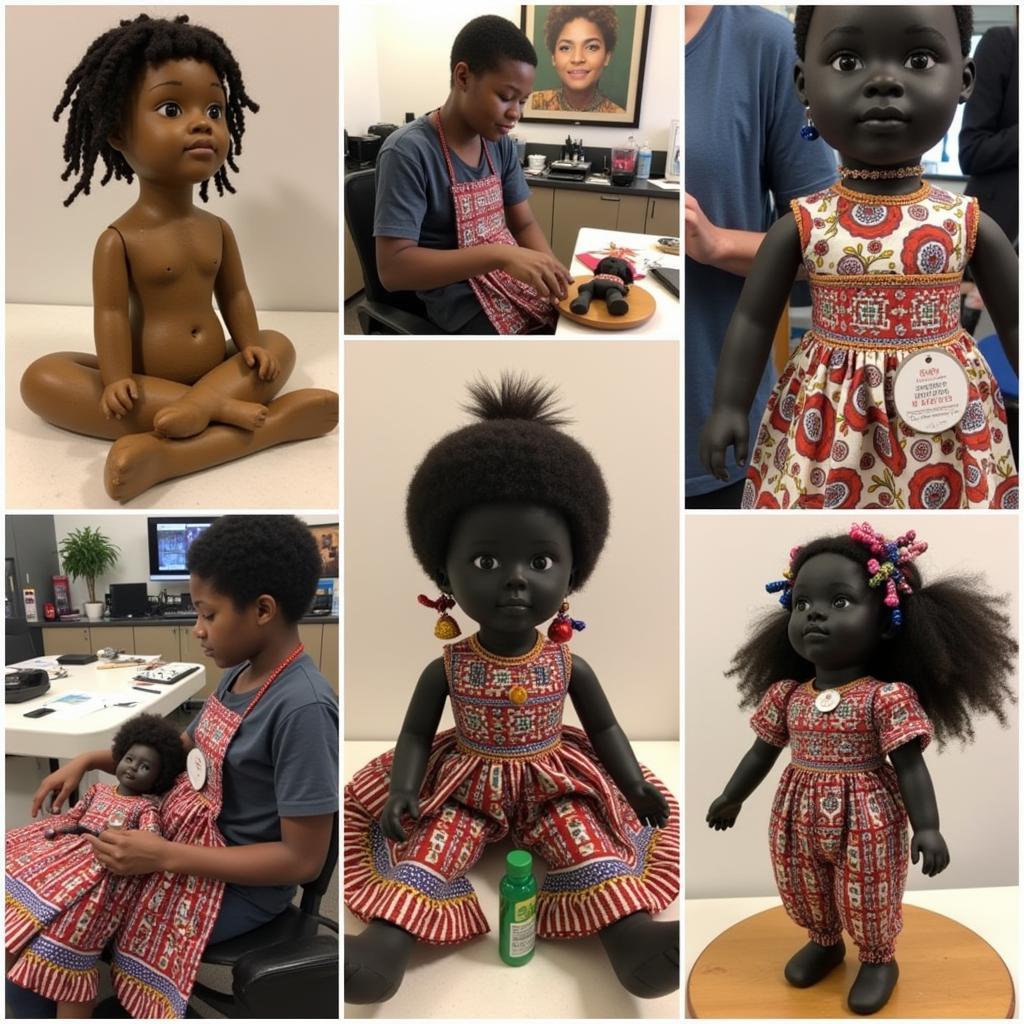African Holocaust Facts: A Deeper Look at a Forgotten Tragedy
The term “African Holocaust” refers to the devastating impact of the transatlantic slave trade on the African continent. This period, spanning from the 15th to the 19th century, saw the forced removal of millions of Africans from their homes, families, and cultures. This systematic exploitation left an indelible mark on Africa’s history, shaping its present and future. While the term “Holocaust” might evoke images of the atrocities committed against Jews during World War II, it serves as a powerful metaphor for the immense suffering and loss inflicted upon the African people during the slave trade.
The Scale of the Tragedy
The transatlantic slave trade was a brutal and inhumane system that involved the forced capture, transportation, and enslavement of millions of Africans. Estimates suggest that over 12 million Africans were forcibly transported across the Atlantic Ocean, with a staggering number of lives lost during the journey and during the ensuing enslavement. The true scale of the tragedy is difficult to quantify, as records were often incomplete or deliberately destroyed. However, historians agree that the impact of this trade was catastrophic, decimating populations, disrupting economies, and leaving a deep scar on African societies.
Beyond the Numbers: The Human Cost
While statistics offer a glimpse into the magnitude of the tragedy, they fail to capture the true human cost of the African Holocaust. The forced removal of Africans from their homes and families caused immense suffering and trauma. Families were torn apart, cultures were disrupted, and the social fabric of African communities was irrevocably shattered. The trauma experienced by enslaved Africans extended beyond the physical hardship of forced labor and brutality. They were subjected to psychological and emotional abuse, stripped of their identities, and denied their basic human rights.
The Lasting Impact: Generations of Trauma
The impact of the African Holocaust extends beyond the historical period of the transatlantic slave trade. The trauma inflicted on generations of Africans continues to reverberate in contemporary societies. The legacy of slavery has left a deep imprint on African economies, social structures, and political systems. The lingering effects of the forced removal of millions of Africans from their homelands and the disruption of their cultural traditions continue to pose challenges to African societies.
“The wounds of the past are still very real and present in the African psyche. The impact of the transatlantic slave trade has shaped our cultural identity, our social structures, and even our economic realities,” states Dr. Amina Mbowe, a renowned African historian.
The Importance of Remembering
Remembering the African Holocaust is crucial for understanding the historical context of Africa and acknowledging the suffering endured by millions. It is also important to recognize the resilience and strength of the African people who survived this brutal period. Their ability to maintain their cultural traditions, adapt to new environments, and build new communities is a testament to the enduring spirit of the African people.
Remembering and Moving Forward
Remembering the African Holocaust is not simply about dwelling on the past. It is about learning from the mistakes of the past and striving to build a future free from oppression and exploitation. The memory of the African Holocaust serves as a reminder of the dangers of racism, prejudice, and the dehumanization of others. It reminds us of the importance of recognizing and respecting the humanity of all people.
Further Exploration
Learning about the African Holocaust is a vital step in understanding the history and culture of the African people. Exploring the topic further can offer invaluable insight into the resilience, strength, and contributions of the African diaspora.
 The Impact of the African Holocaust
The Impact of the African Holocaust
“The African Holocaust is not just a story of suffering, but also a story of resistance, resilience, and hope,” says Dr. Mbowe. “By understanding the past, we can work towards building a more just and equitable future for all.”
FAQ
Q: What is the African Holocaust?
A: The African Holocaust refers to the devastating impact of the transatlantic slave trade on the African continent. This period, spanning from the 15th to the 19th century, saw the forced removal of millions of Africans from their homes, families, and cultures.
Q: How many Africans were enslaved?
A: Estimates suggest that over 12 million Africans were forcibly transported across the Atlantic Ocean, with a staggering number of lives lost during the journey and during the ensuing enslavement.
Q: Why is it called the “African Holocaust?”
A: The term “Holocaust” is used to highlight the immense suffering and loss inflicted upon the African people during the slave trade, drawing a parallel to the horrors experienced by Jews during World War II.
Q: What are the lasting impacts of the African Holocaust?
A: The African Holocaust left a deep imprint on African economies, social structures, and political systems. The lingering effects of the forced removal of millions of Africans from their homelands and the disruption of their cultural traditions continue to pose challenges to African societies.
Q: How can we learn more about the African Holocaust?
A: You can learn more about the African Holocaust by reading books, watching documentaries, visiting museums, and engaging with resources from reputable organizations.


